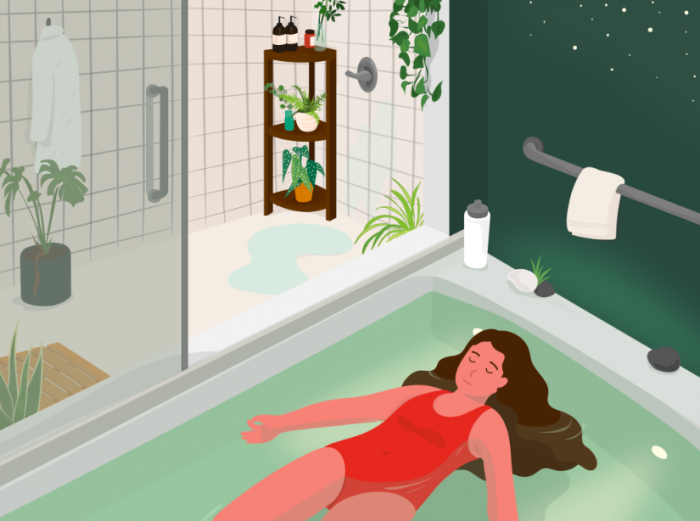Right about this time of year, my phone starts ringing off the hook with patients asking what to do for their cold.
People want alternatives to over-the-counter medications, such as analgesics, decongestants, and antihistamines, which can cause unwanted side effects. Many are reluctant to take antibiotics, which are not helpful for the majority of viral colds and respiratory tract infections (RTIs), and can damage the gut.
The good news is that there are effective natural strategies. Many focus on reducing inflammation and stress, which can increase our vulnerability to illness, and prolong unpleasant symptoms.
Others, like targeted supplements and botanical medicines, help strengthen our immune system—much of which arises from our gut.
If you are suffering from a winter ailment, or interested in preventing them, here are some of my favorite, gentle and effective, naturopathic medicine recommendations for cold, flu, and other respiratory tract infections.
1. Get plenty of rest. Being run down keeps our immune system from optimal function. We need to power down the computer, turn off the phone, and give our bodies and mind a break. Forget about our to-do lists. If you can, hire a babysitter, watch a movie, read a book, or take a nap.
2. Stay hydrated and limit alcohol intake. This helps to thin our mucous and keeps our bowels moving, which in turn helps to decrease inflammation. Alcohol dehydrates and is also loaded with sugar, which is inflammatory.
3. Reduce refined sugar in the diet. We should especially avoid soda, candy, and baked goods, while increasing our intake of fruits and vegetables to help reduce inflammation. By increasing fiber through fruits, vegetables, whole grains, and legumes, we have an increased sense of satiety and we help encourage proper elimination. This strategy also makes less room for unhealthy choices.
4. Continue with regular exercise. Only do as your energy allows, which helps raise your threshold for feeling stress and dissipates stress you do have. The field of psychoneuroimmunology underscores just how much stress negatively impacts our immune system function.
5. Wash your hands often. It’s especially important to do so after being at work, school, the gym, and before we eat. Soap and water is best. Research shows that alcohol or antibacterial soaps are making infection-causing bacteria resistant to antibiotics.
6. Take supplements. We want supplements that will enhance immunity while also helping to create and maintain healthy mucous membrane tissue, essential for fending off germs. Below are my favorite nutritional supplements to use for an average adult not currently taking other medications.
These are only guidelines; if you also have other unrelated illnesses, please consult your primary care physician or a licensed naturopathic doctor near you before taking these items.
>> Vitamin C, Zinc, Vitamin D all help with both prevention and treatment of a variety of winter ailments.
>> Bromelain, an enzyme derived from pineapple, helps to reduce inflammation and support immune function.
>> A probiotic and cultured/fermented food such as miso, yogurt, kefir, kimchi, or kombucha can help absorb toxins in the digestive system. Keep in mind that the majority of our immune system is generated in our gut, so it’s important to focus our attention there.
7. Use botanical medicines. Find ones that help bolster immune function and keep the mucous membranes doing their job. Here are five of my favorites:
>> Astragalus membranaceus, which helps support immune function. I usually recommend it in tincture form, diluted with water, and sipped through the day.
>> Sambucus nigra, or elderberry, does the same and is especially soothing to the mucous membranes of the upper respiratory tract. Sipping on elderberry tea or taking elderberry syrup feels good to irritated tissue.
>> Ulmus fulva, or slippery elm, is often used for digestive complaints but is just as helpful when the throat is irritated and the voice is hoarse. Try it in tea or lozenge form.
>> Allium sativa also known as garlic is an antimicrobial herb that can help break up mucus, and is delivered through tinctures, syrups, capsules, or crushed fresh.
>> Thymus vulgaris, or thyme, from the mint family is an antimicrobial herb, and also an immune stimulant which can help relax a spastic cough.
>> Echinacea purpurea is an anti-inflammatory, immune modulating herb that activates white blood cells to fight infection and can also be used for prevention.
8. Luxuriate in a hot bath for relaxation. This common hydrotherapy treatment has also shown many positive health benefits for your cardiovascular, respiratory, and nervous systems. Invest in a cozy hot water bottle or heating pad if you tend to be chilly or get achy.
9. Turn on a vaporizer. It’s easy to get dried out especially when the heat goes on in our homes. Close doors to rooms to help build up humidity. Remember to clean vaporizers regularly to prevent mold growth.
10. Eat soup. Vegetable soup, miso soup, and bone broth help to replenish electrolytes and have other healing capacities. Often, these warm meals taste just right and bring comfort when we are sick.
If you are feeling well but in close contact with someone who is sick or if you are taking care of an ill person, go ahead and use these recommendations too. Dosing of supplements and botanicals depends on weight, other underlying chronic diseases, and other nutritional or herbal supplements or medications being taken.
A licensed naturopathic doctor can help guide you and ensure there are no contraindications for nutritional or botanical medicine prescriptions.
Lastly, when you are recuperating from being sick, keep following this regimen. You are more vulnerable for days after illness has passed, so plan your schedule accordingly and strategize ways to keep stress down and healthy habits up.
Perhaps the biggest lesson is this: as long as an acute illness is not severe, long-lasting, or constantly recurring, it’s not a bad thing to be sick once in a while. Our immune system gets a bit of a workout and we can take a pause from the busyness of life.
Of course, this is not true for immune compromised individuals and some other groups, or if mild illnesses trigger other more serious complaints. But for most of my patients I often reassure them that it’s natural to get sick once in a while.
~







Read 2 comments and reply